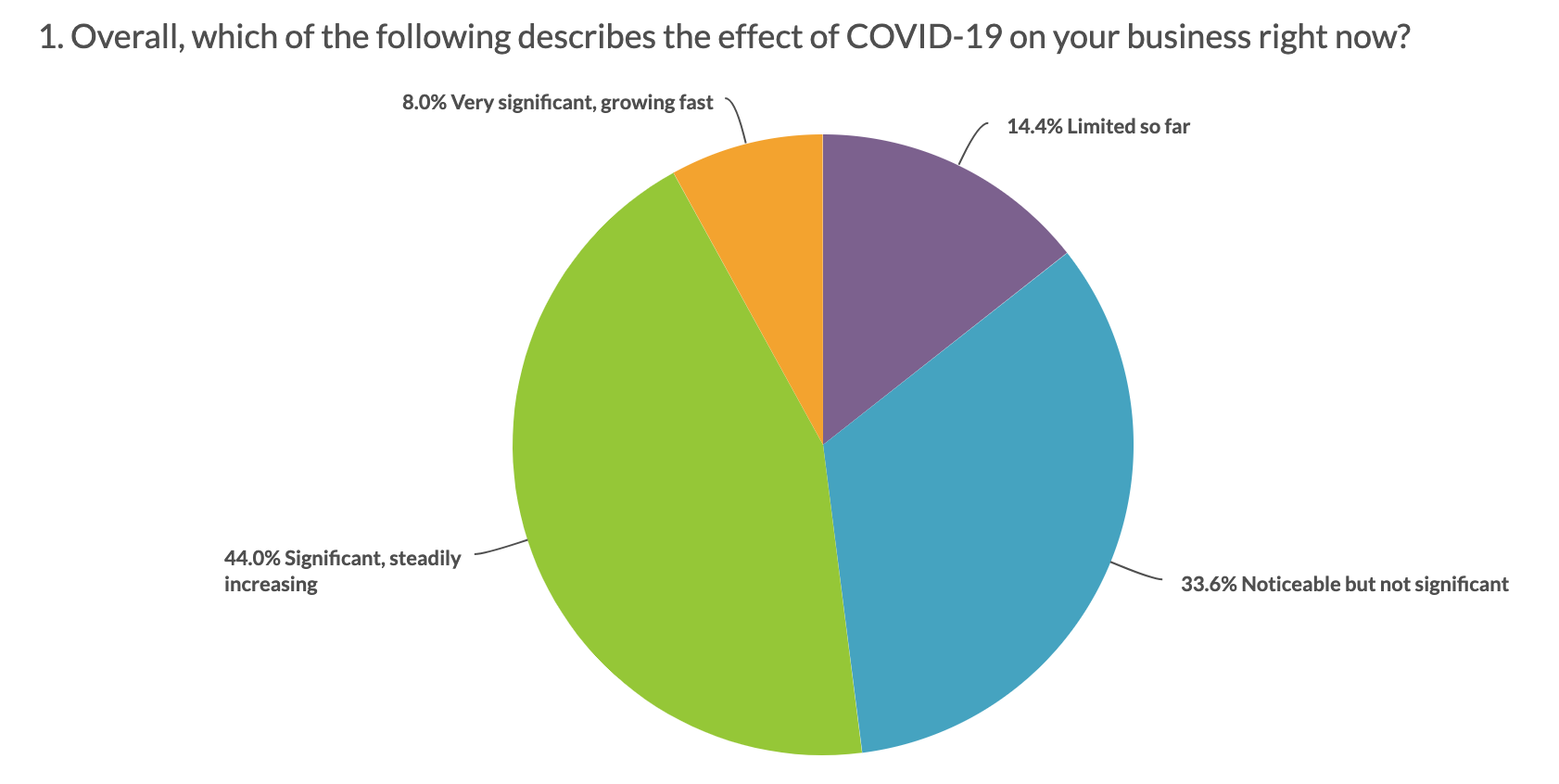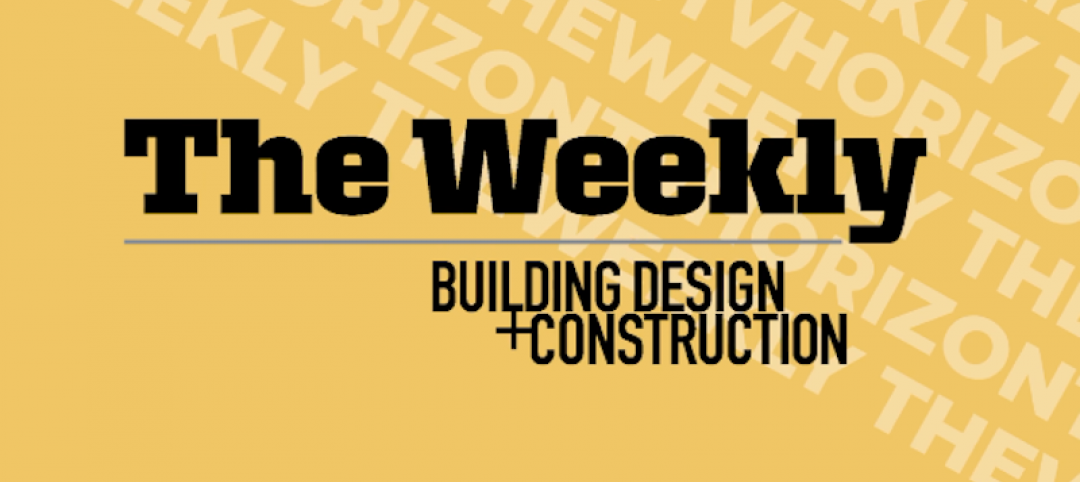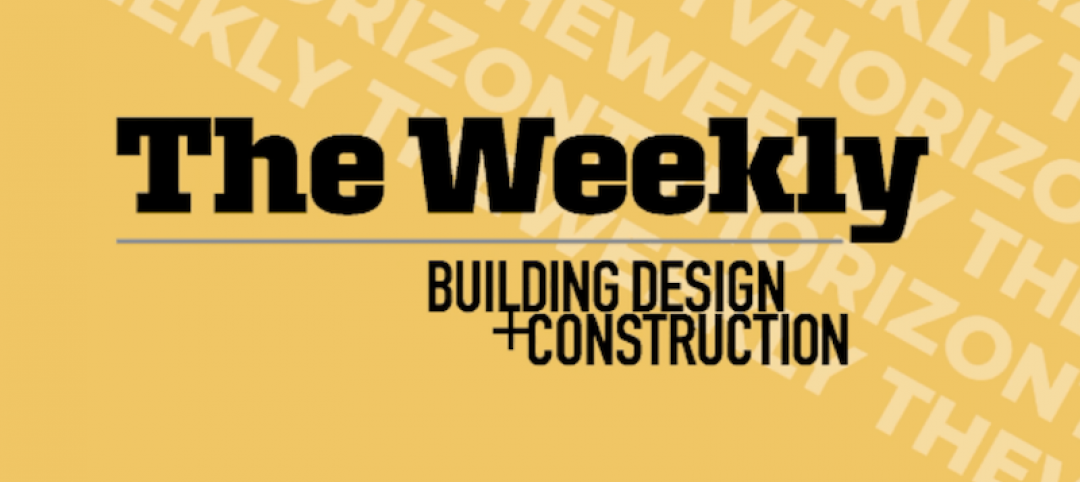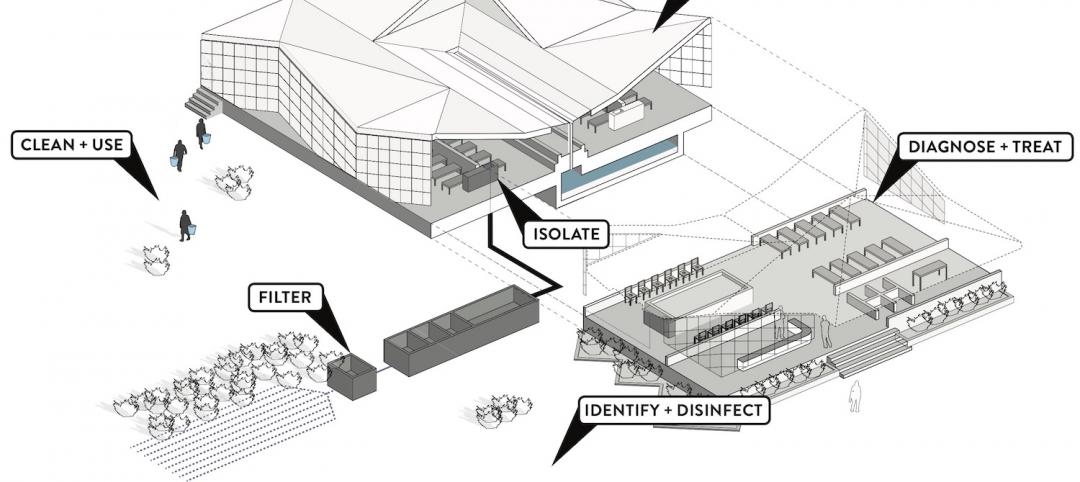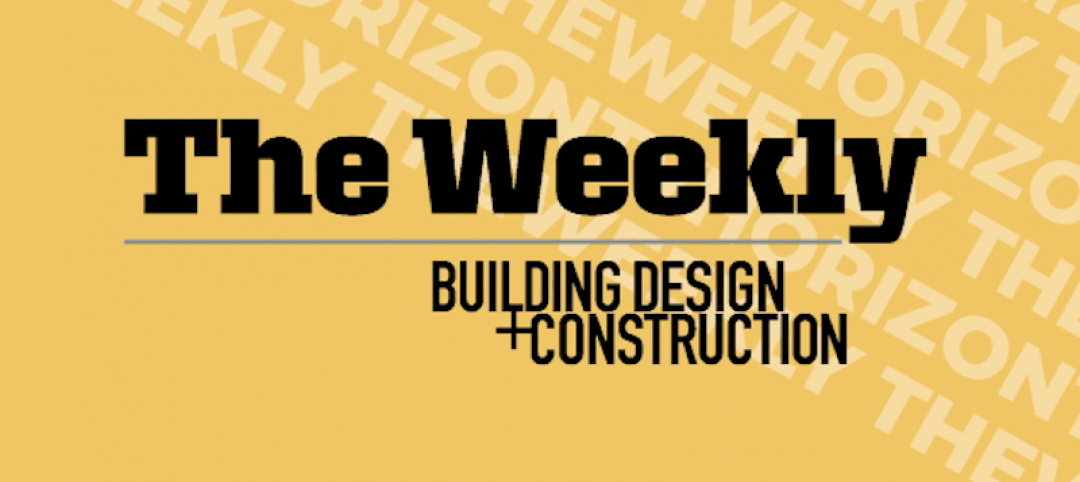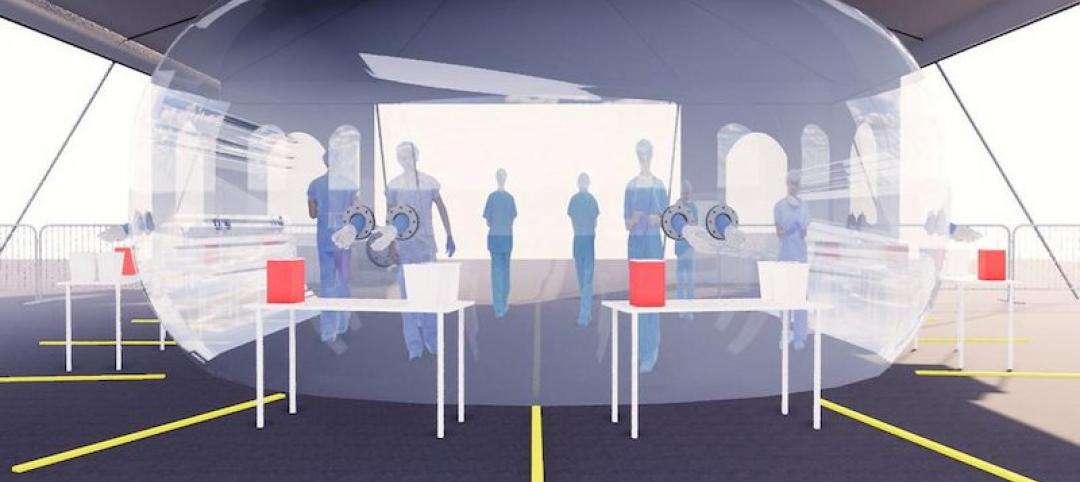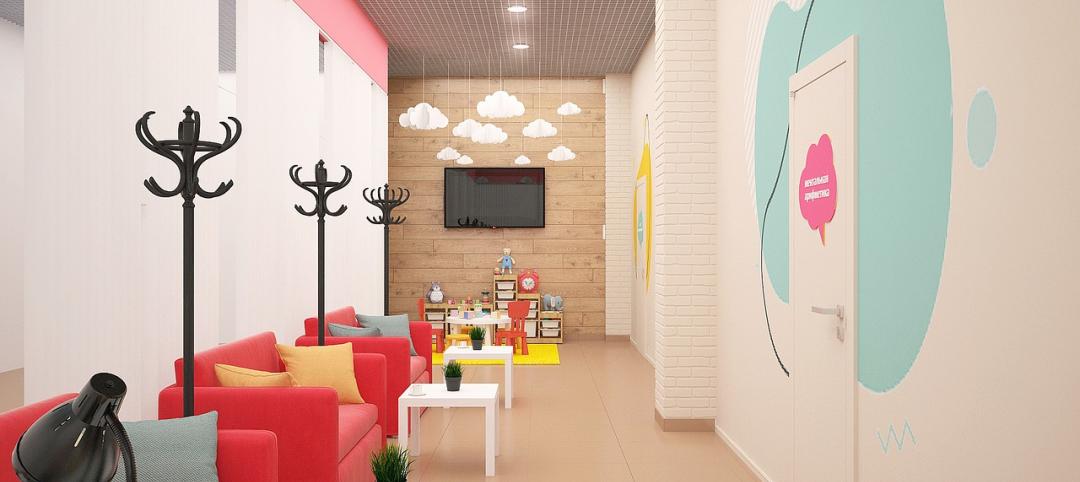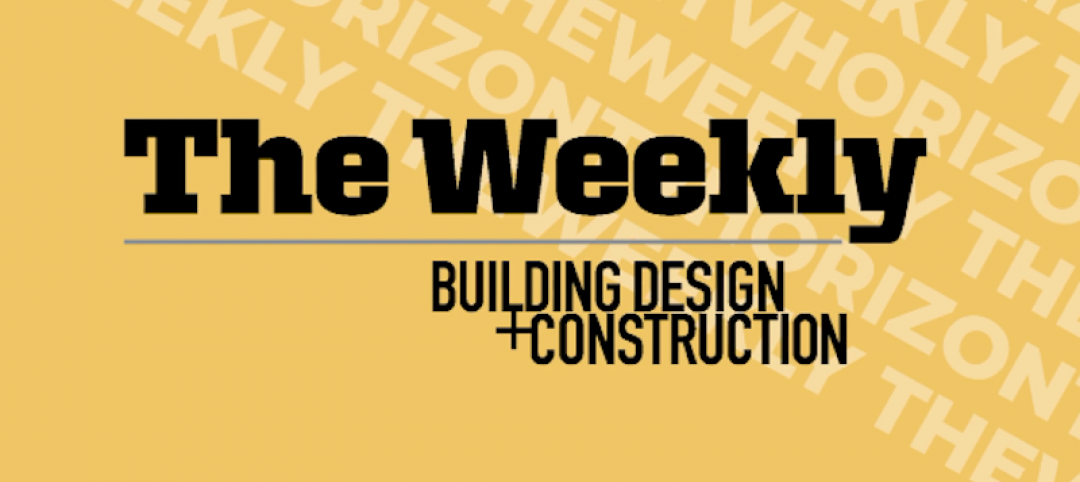A new survey from the National Roofing Contractors Association (NRCA) shows that the majority (52%) of roofing contractors said the coronavirus-fueled economic shutdown has already had a "significant" or "very significant" effect on their businesses.
The biggest negative impact reported was a slowdown in normal bid activity (58.9%), followed by reduced customer demand for low-slope roofing work (48.0%). Nearly half of respondents (45.2%) had suffered job cancellations.
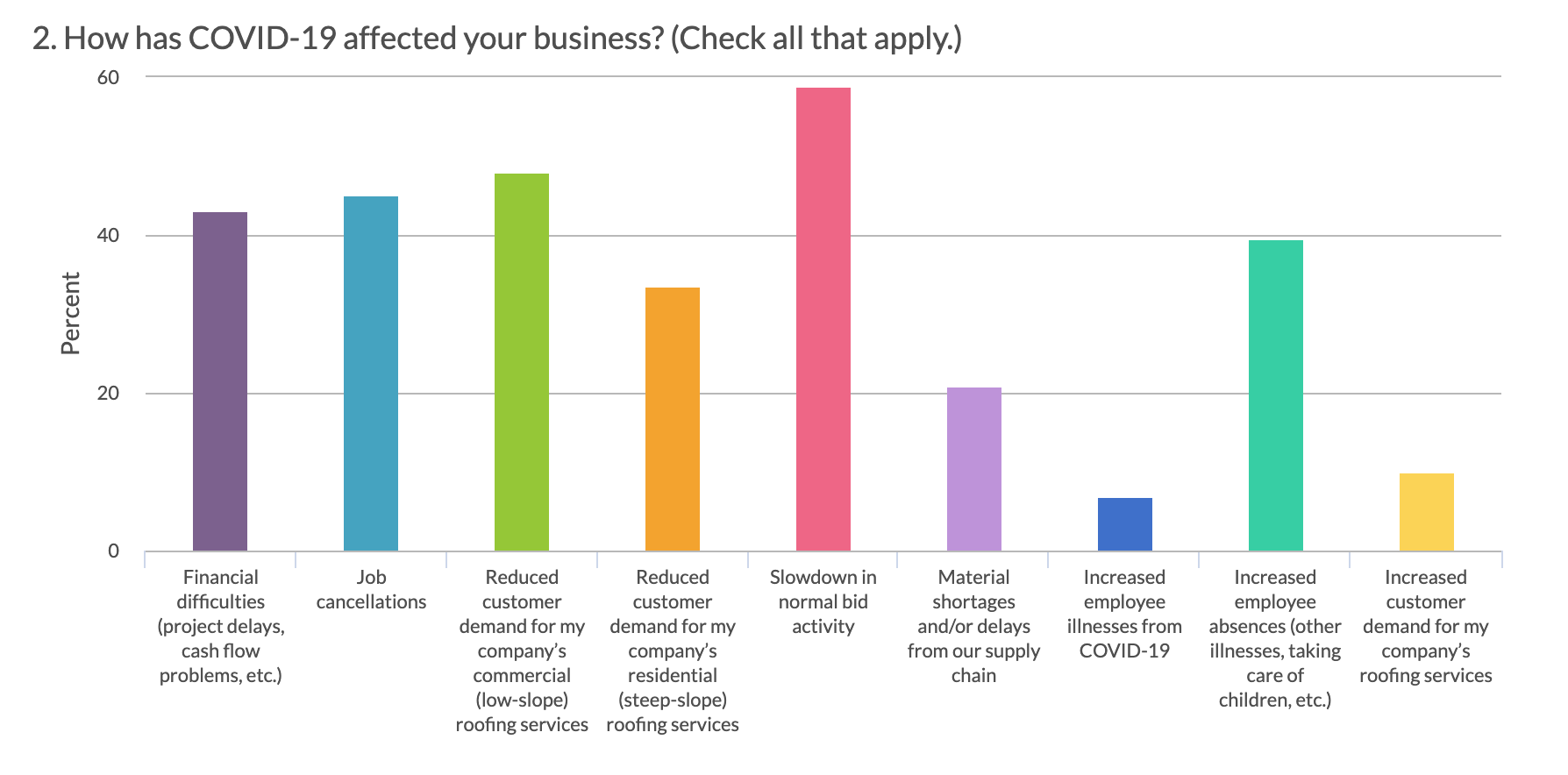
NRCA survey: COVID-19 effect on roofing contractor businesses, especially for low-slope roofing.
As of April 7, 2020, one in six respondents (16.8%) had had to lay off workers. A small group (6.4%) said their firms had been forced to close shop. The majority (55.6%) had taken no action in response to the coronavirus pandemic.
MOST ROOFING CONTRACTORS HAD TROUBLE GETTING ACCESS TO CONSTRUCTION SITES
About one-fifth (22.2%) of respondents said their business was experiencing trouble with material delivery, trucking, or other material sourcing interruptions. Nearly two out of three (65.3%) said building owners had limited contractor access to construction sites or buildings as part of their (the owners') coronavirus response plans.
Roofing contractors also reported other restrictions by local jurisdictions, notably service delays for inspections and permits (56.5%). More than one-third (36.5%) said local jurisdictions had stopped accepting applications for new permits.
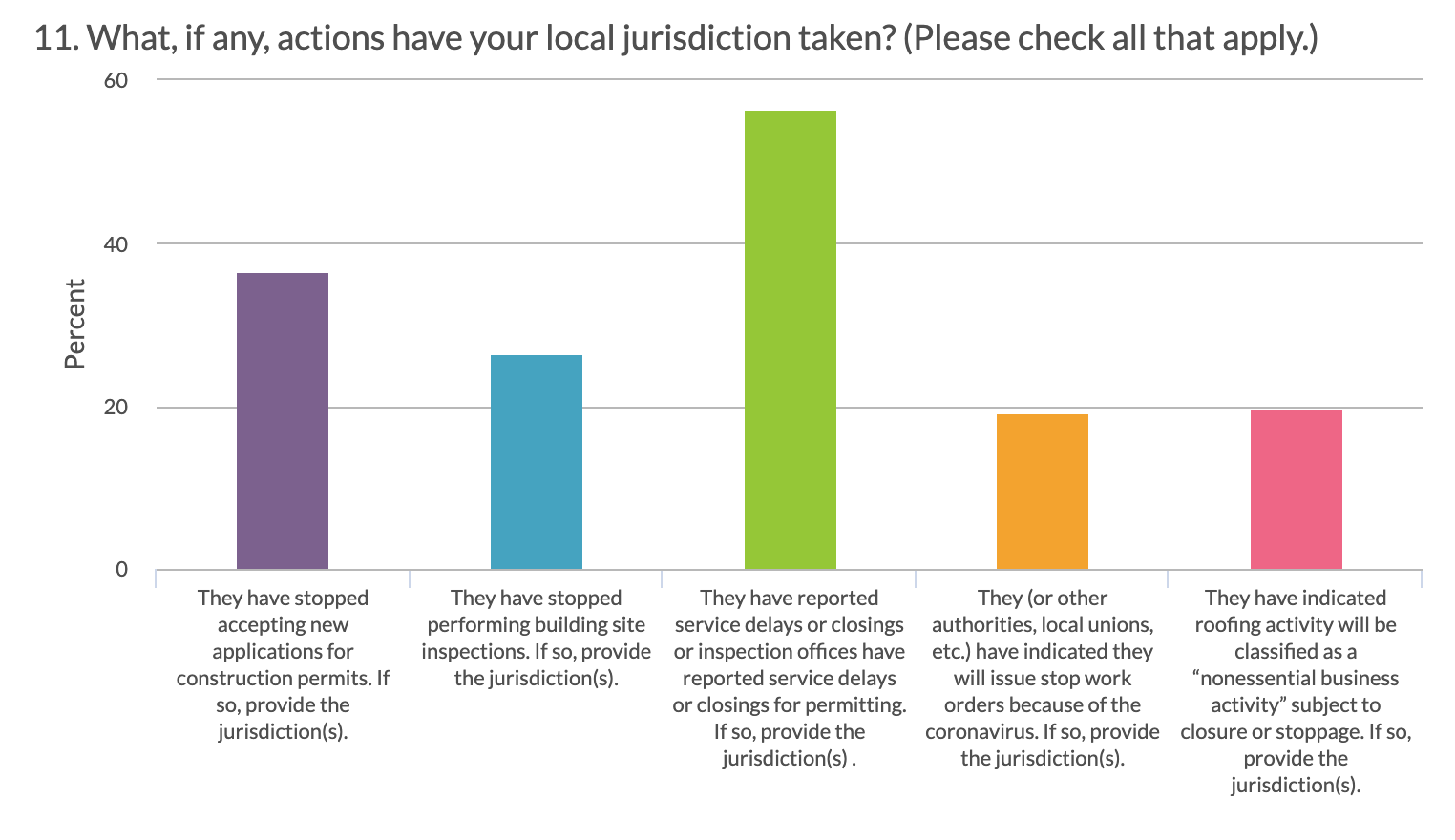
NRDC: Actions taken by local jurisdictions as a result of COVID-19 pandemic.
MOST ROOFERS SAID THEY WERE STILL OPTIMISTIC ABOUT THE FUTURE
Despite all the negatives associated with the COVID-19, a strong majority of roofer respondents (61.9%) said they could be back in business "as usual" in less than a month once the all-clear was issued. The majority (56.3%) said they were "somewhat confident" about the future of their businesses, and 37.2% were "very confident."
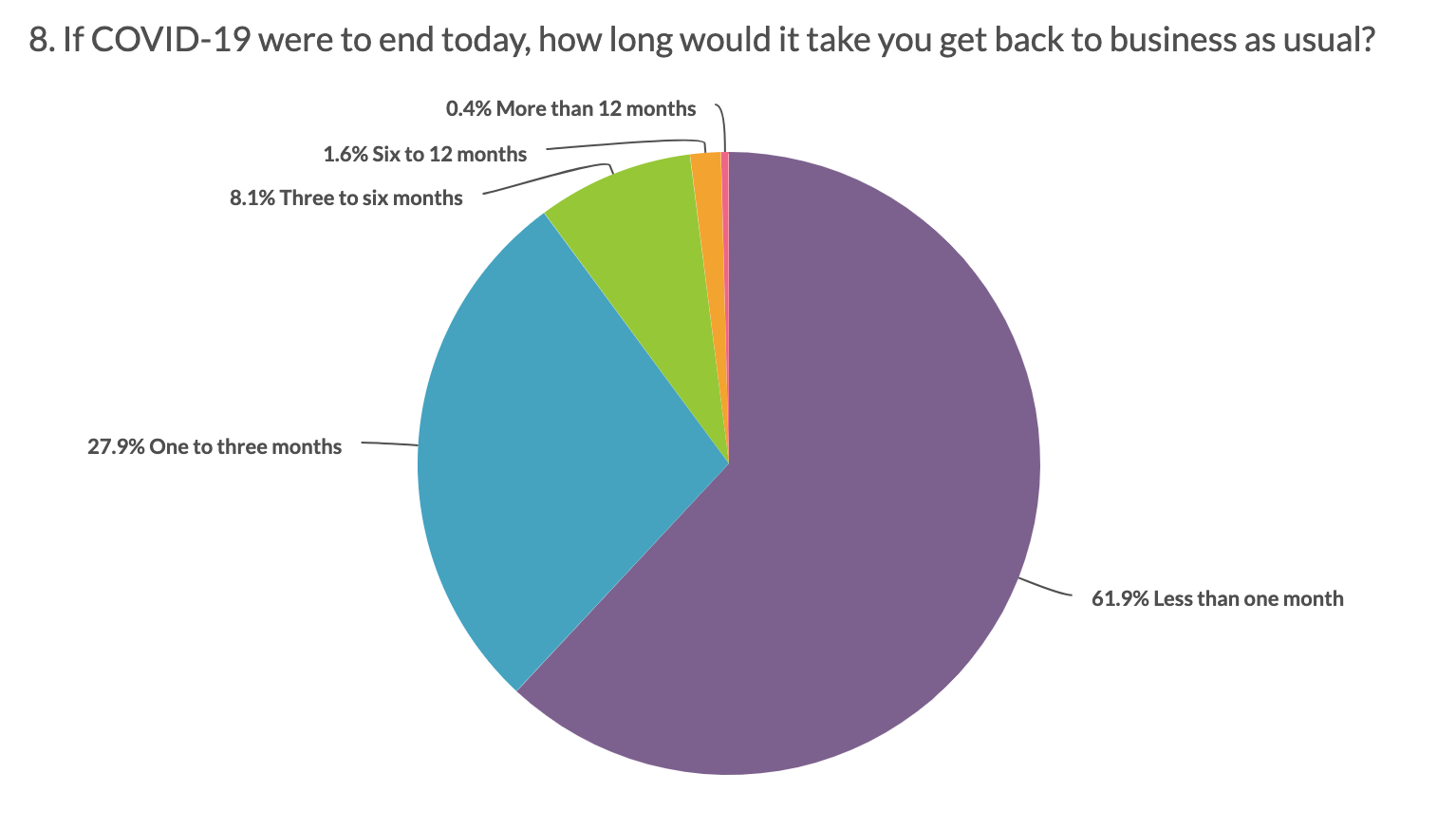
NRCA survey: Most roofers expect to be back in business soon after the pandemic ends.
Related Stories
Coronavirus | Jul 31, 2020
The Weekly show: Microhospitals, mass timber, and the outlook for 5 key building sectors
The July 30 episode of BD+C's "The Weekly" is available for viewing on demand.
University Buildings | Jul 24, 2020
A hybrid learning approach could redefine higher education
Universities reassess current assets to determine growth strategies.
Coronavirus | Jul 20, 2020
Student housing amid the pandemic, infection control in buildings, and future airport design on "The Weekly"
Experts from Core Spaces, Bala Consulting Engineers, and Populous were interviewed in the July 23 streaming program from Horizon TV.
Coronavirus | Jul 17, 2020
Never waste a crisis
The coronavirus outbreak has provided numerous lessons for AEC firms.
Coronavirus | Jul 17, 2020
The Weekly show: What 40K workers have to say about WFH, and design in the digital age
This week on The Weekly, BD+C editors spoke with leaders from Cushman & Wakefield, HMC Architects, and HOK on three timely topics.
Coronavirus | Jul 14, 2020
Is there a way to test for Covid-19 without PPE?
We developed a unique design concept: a testing booth that allows healthcare workers to administer tests without using PPE or being exposed.
Coronavirus | Jul 13, 2020
4 technologies for improving building sanitization in a post-pandemic society
Changes in building design and operations can drastically improve public health and safety.
Coronavirus | Jul 10, 2020
HOK, Cushman & Wakefield, and HMC Architects hold sway on July 16 "The Weekly"
“The Weekly,” a new streaming program for the commercial design and construction industry, to feature experts from HOK, Cushman & Wakefield, and HMC Architects. Tune in July 16 for insight on social media and interior design, the future of the workplace, and healthcare design after COVID-19.
Coronavirus | Jul 10, 2020
The Weekly show: Carbon-fiber reinforced concrete buildings and back to campus amid COVID-19
The July 9 episode of BD+C's "The Weekly" is available for viewing on demand.
Coronavirus | Jul 1, 2020
Are hospitals prepared for the next pandemic?
Caught off guard by COVID-19, healthcare systems take stock of the capacity and preparedness.


